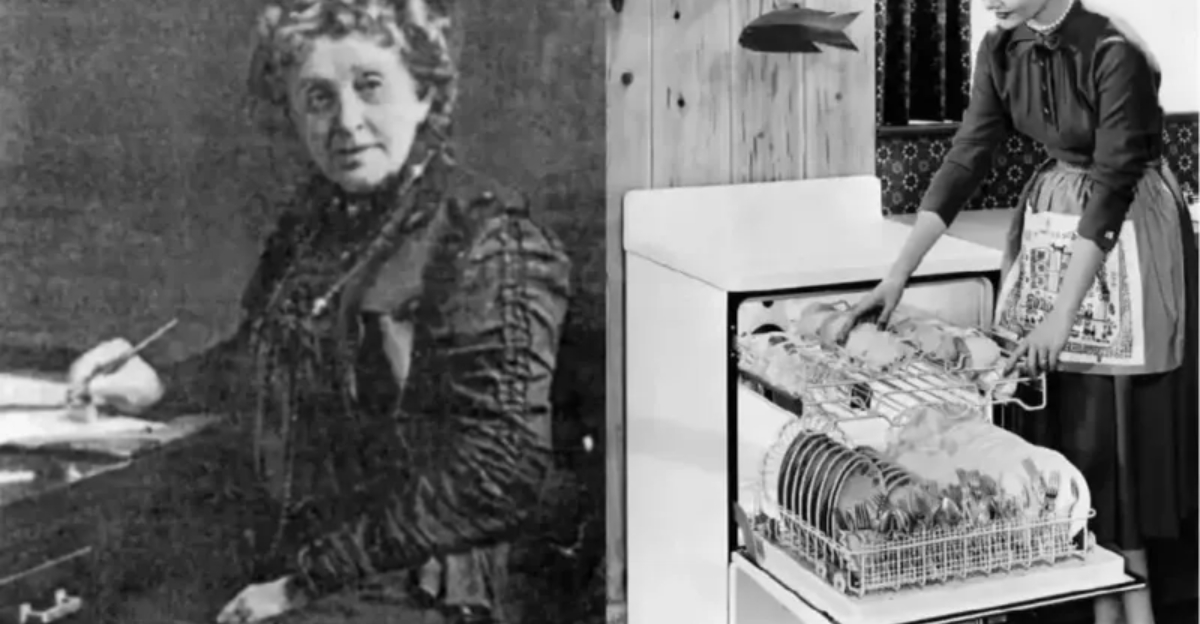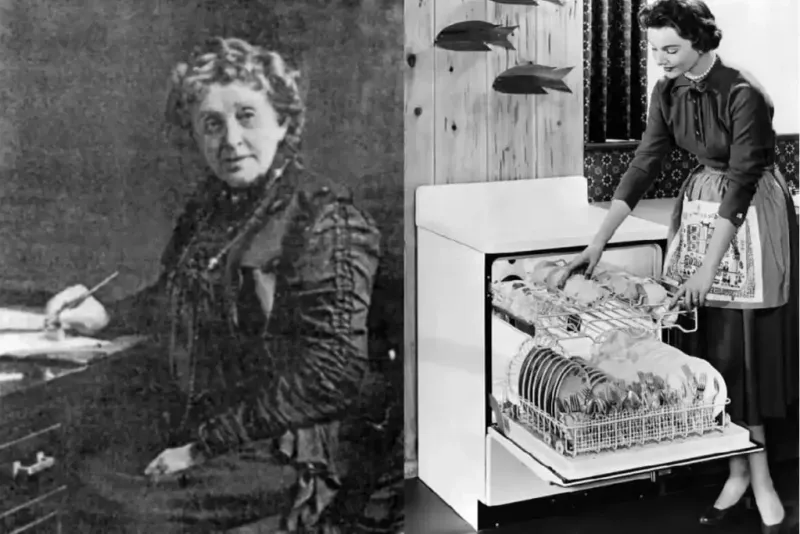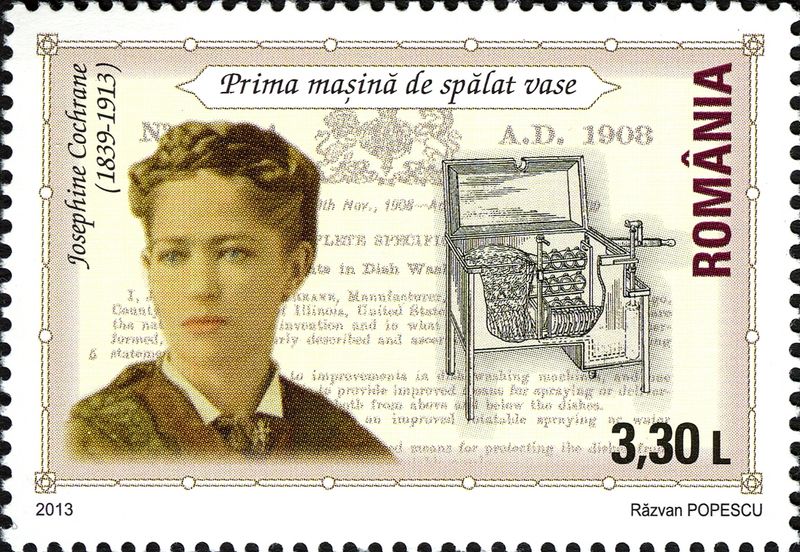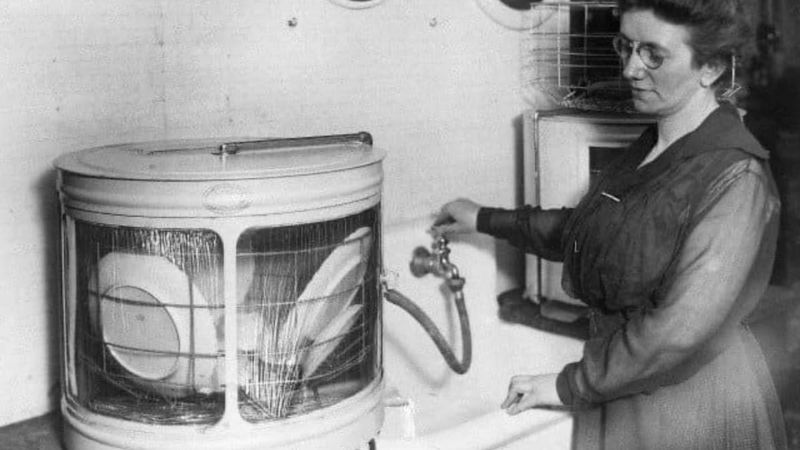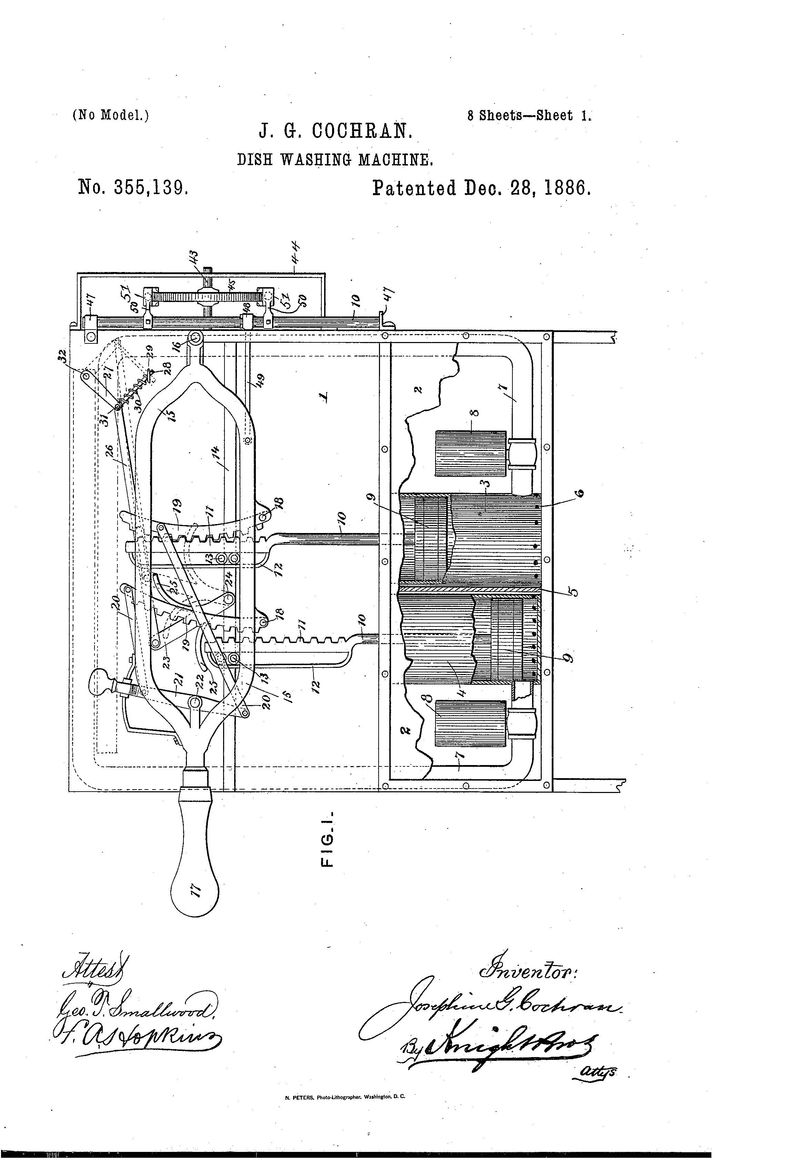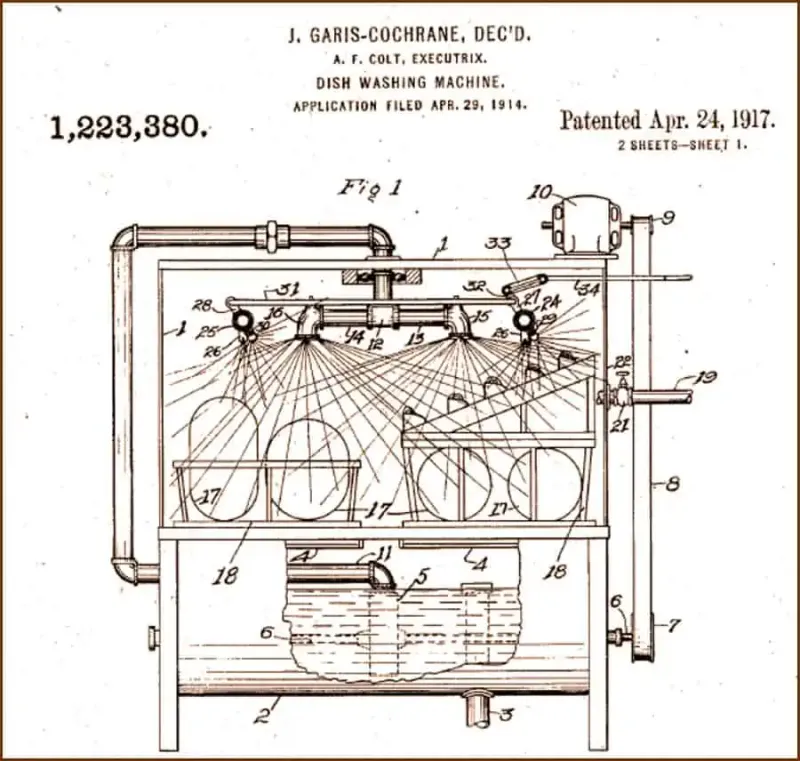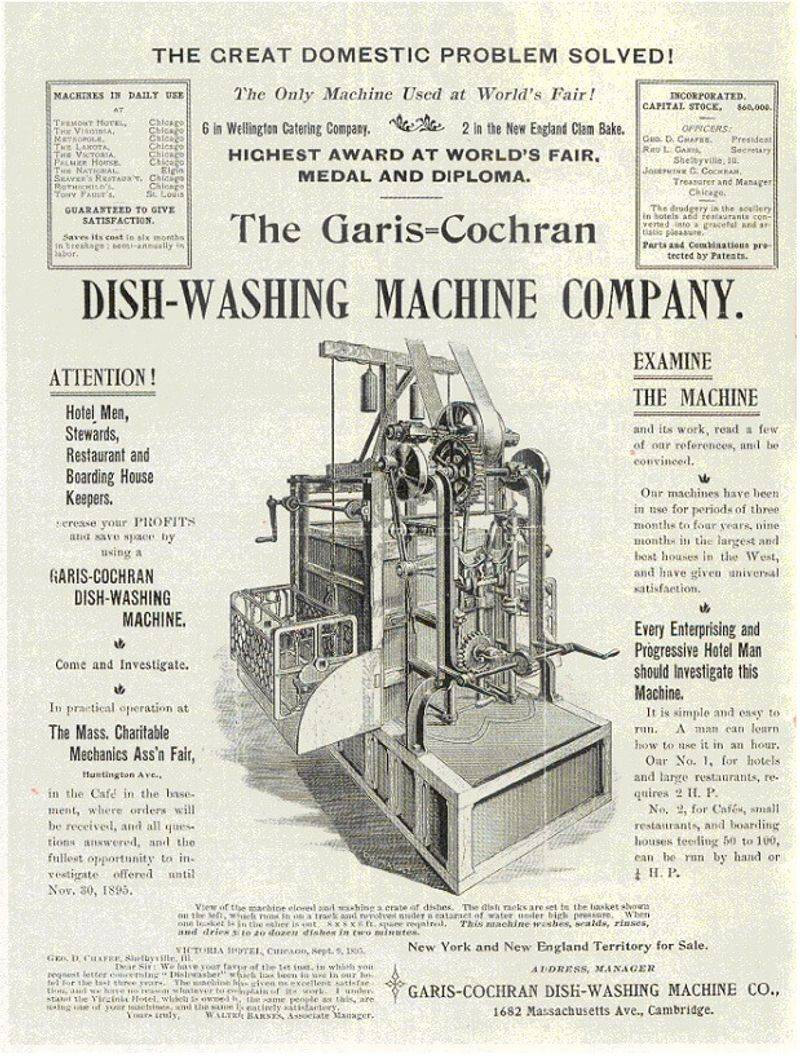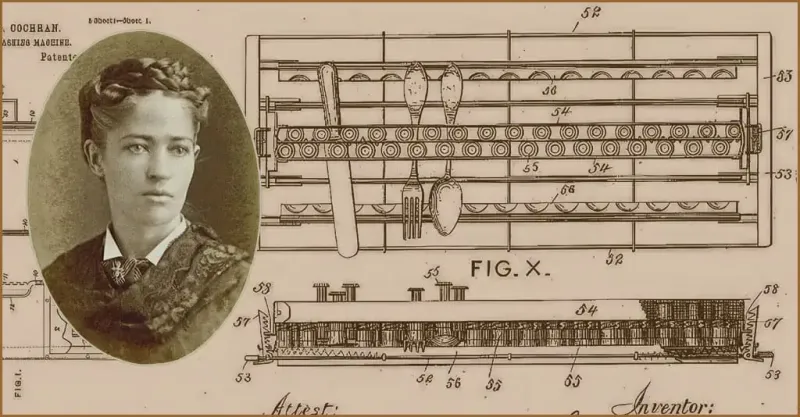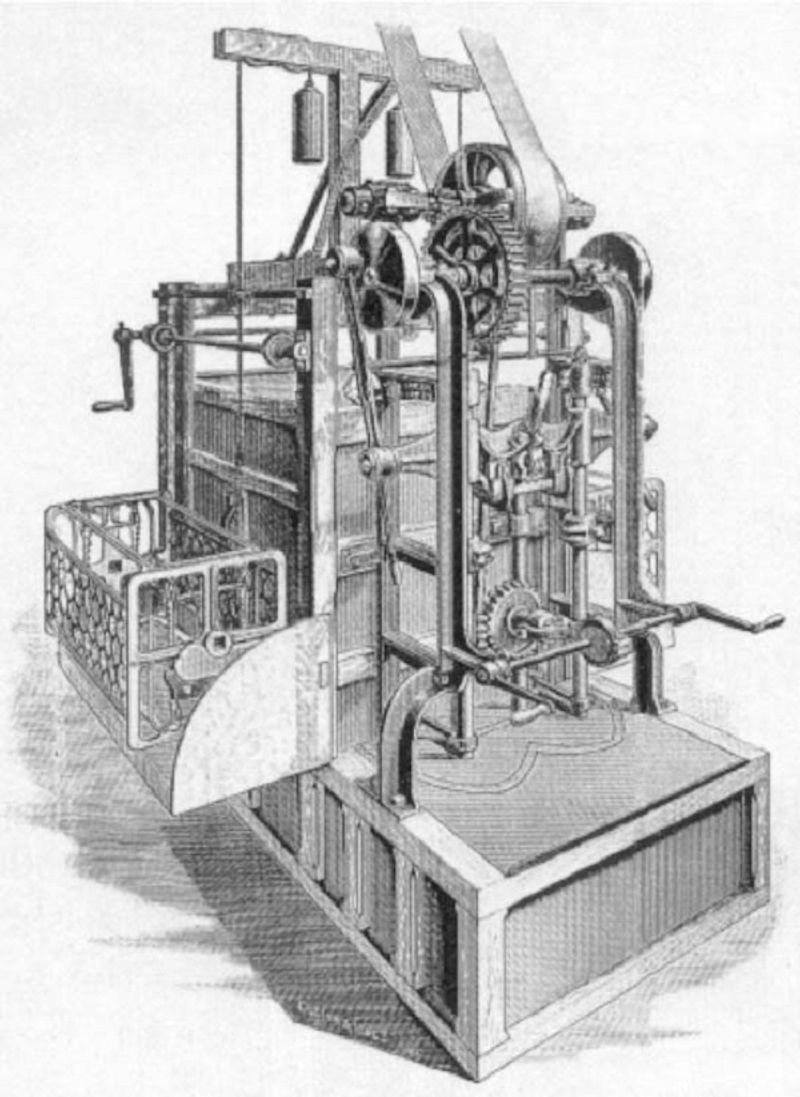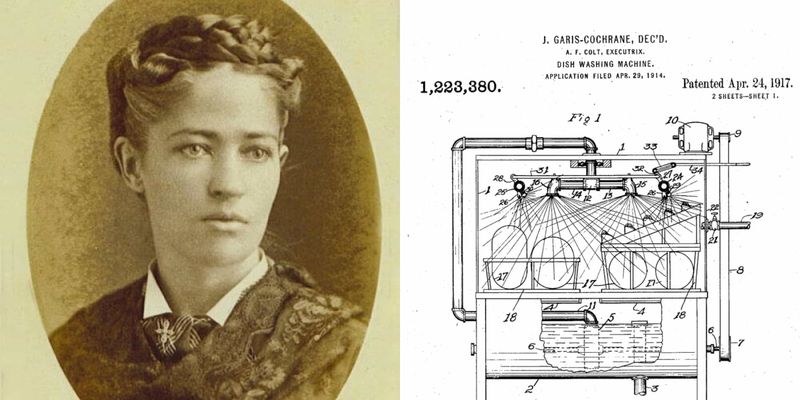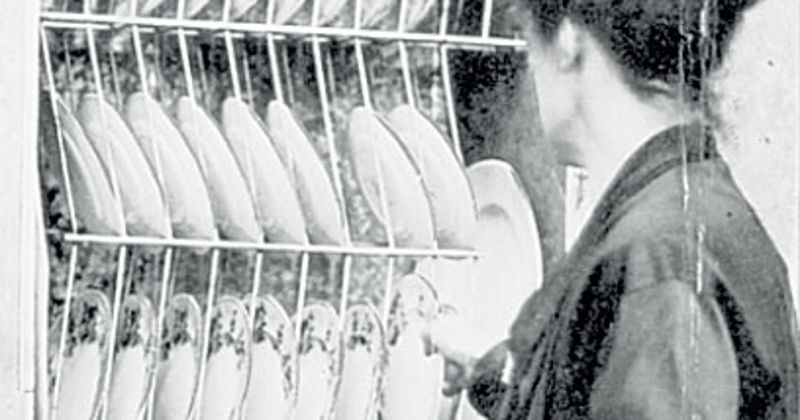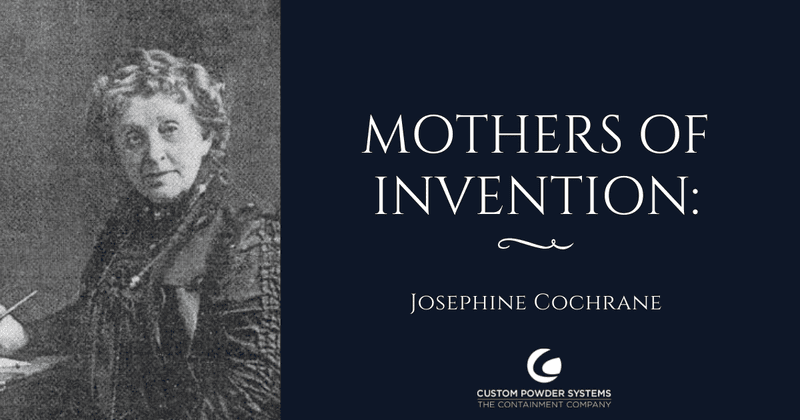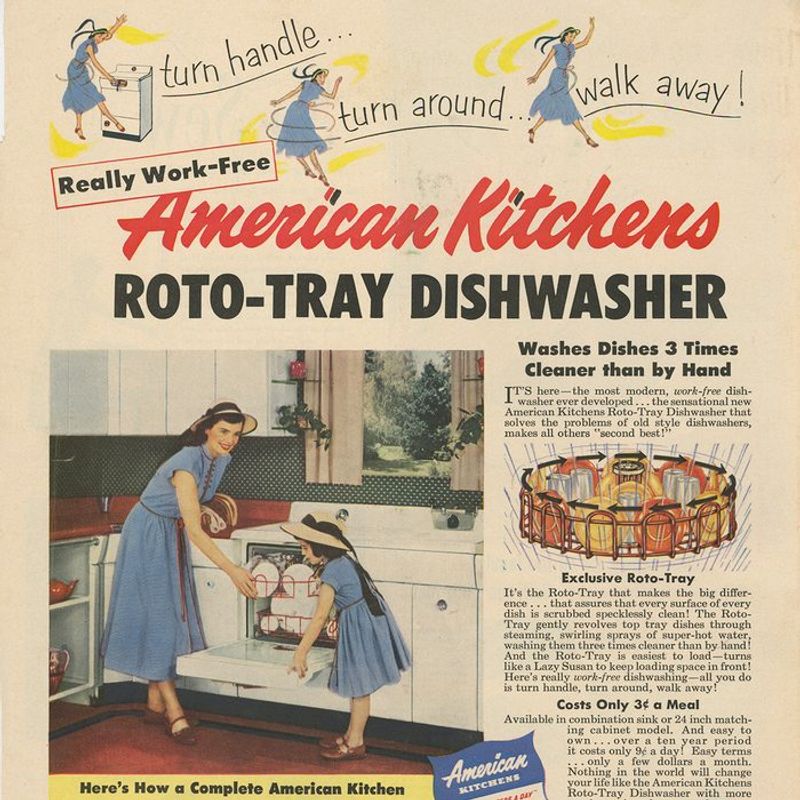When you think about life-changing inventions, the automatic dishwasher might not be the first thing that comes to mind — but it should be. Behind this revolutionary device was an extraordinary woman: Josephine Cochrane. Here’s a deep dive into surprising facts about her, her invention, and how it reshaped the modern world:
1. It All Started with Broken China
Imagine hosting a grand dinner, only to discover your cherished china chipped by a careless hand. For Josephine Cochrane, this wasn’t just a nuisance; it was a call to action. She cherished her expensive fine china, and seeing it damaged was the final straw that led her down the path of invention.
This wasn’t merely about preserving dishes but preserving memories tied to each plate. It’s a reminder of how small moments can spark significant innovations. Her determination to protect her prized possessions drove her to create something extraordinary.
2. She Wasn’t an Engineer — She Was a Socialite
In an era dominated by men in the fields of engineering and innovation, Josephine Cochrane stood out. Not because she had formal training, but because she didn’t. She was a socialite, more at home in a ballroom than a workshop.
This juxtaposition paints a charming picture of a woman sketching designs amidst opulent gatherings. Her social status didn’t deter her; it fueled her drive. She believed she could create a machine to wash dishes better than any servant, and that belief turned into a groundbreaking reality.
3. The First Dishwasher Was Powered by Hand
Before electricity powered our homes, Josephine’s dishwasher relied on the sheer force of water pressure and a good old-fashioned crank. The ingenuity of a hand-powered machine was a testament to her practical approach.
She envisioned a world where manual labor was minimized, even if it meant manually cranking the device. This innovation was more than a convenience; it was a revolution in kitchen efficiency. Her dishwasher wasn’t just a machine; it was a promise of a future where technology lightened the burdens of everyday life.
4. Josephine Patented the Dishwasher in 1886
Securing a patent in 1886 was no small feat, especially for a woman. Josephine Cochrane’s meticulous designs and relentless passion culminated in legal protection for her invention. This wasn’t just a victory for her but for women aspiring to enter the world of innovation.
Her patent showcased detailed mechanical drawings, a testament to her vision and foresight. While many argue about the exact year, 1886 marks her place in history. This patent was more than a document; it was a declaration that women could and would continue to contribute to technological advancement.
5. Men Laughed at Her Invention at First
Imagine presenting a groundbreaking invention, only to be met with laughter and skepticism. That’s what Josephine Cochrane faced from the men of her time. They dismissed the dishwasher as unnecessary, a novelty rather than a necessity.
However, her resolve was unshaken, and she persisted. Once hotels and restaurants realized its efficiency, the laughter faded into admiration. Her story reminds us that initial mockery can often precede groundbreaking success. Josephine’s ability to see beyond the ridicule and push forward is a story of resilience and visionary foresight.
6. She Built the Prototype in Her Shed
In a modest shed behind her home, Josephine Cochrane, with the help of a mechanic, brought her vision to life. The first prototype of her dishwasher didn’t emerge from a high-tech lab but from a simple workspace.
This shed was more than a building; it was a workshop of dreams, where perseverance met creativity. The clinking of tools and the smell of oil were her symphony of innovation. She demonstrated that you don’t need state-of-the-art facilities to invent; all you need is determination and a bit of space to think freely.
7. Her First Customers Were Commercial Businesses
While many assumed the dishwasher would grace the homes of the wealthy, its first users were commercial establishments. Hotels, restaurants, and institutions saw its potential to save time and labor.
These bustling kitchens became the proving ground for her invention. The dishwasher was a silent partner in efficiency, quickly gaining favor among chefs and managers. This unexpected market adoption highlights how practicality can often drive innovation in unexpected directions. Josephine’s creation found its niche, reshaping how businesses approached dishwashing forever.
8. She Won a Big Award at the 1893 Chicago World’s Fair
The 1893 Chicago World’s Fair was a spectacle of innovations, and among them stood Josephine Cochrane’s dishwasher. Her invention wasn’t just displayed; it was celebrated and awarded for its ingenuity.
This recognition at such a prestigious event was more than a personal triumph—it was validation on a global stage. The fair brought together visionaries from around the world, and Josephine’s success story resonated with many. Winning an award here wasn’t just an accolade; it was an affirmation that her dishwasher was a technology ahead of its time.
9. Josephine Founded Her Own Company
With her patent secured and an award in hand, Josephine Cochrane took a bold step forward by founding the Garis-Cochran Manufacturing Company. This wasn’t just a business venture; it was her legacy.
Her company manufactured and marketed dishwashers, expanding her vision beyond her initial invention. This entrepreneurial leap showcased her business acumen and commitment to making dishwashers accessible. Establishing her own company allowed Josephine to control her invention’s destiny, ensuring it reached as many kitchens as possible. Her efforts laid the groundwork for modern appliance companies.
10. She Never Got Rich from Her Invention
Fame and respect followed Josephine Cochrane, but wealth remained elusive. Despite her invention’s success, the financial rewards didn’t flow as one might expect. She navigated a male-dominated business world with grace and determination, but monetary success was never the hallmark of her journey.
Her story is a poignant reminder that not all successful inventors find financial prosperity. Nonetheless, her impact transcended wealth, as she left a legacy that transformed domestic life. Josephine’s experience underscores the idea that true success lies not in riches but in the enduring influence of one’s work.
11. The Invention Was Ahead of Its Time for Homes
Josephine Cochrane’s dishwasher, though revolutionary, was initially too cumbersome and costly for average households. Its size and price meant it was ahead of its time for domestic kitchens.
While homes were slow to adopt, the invention planted seeds of change. It challenged conventional domestic roles and hinted at a future where technology would simplify household tasks. This gap between innovation and adoption highlights the visionary nature of Josephine’s work, suggesting that sometimes the world needs time to catch up with groundbreaking inventions.
12. Post-WWII Boom Made Dishwashers a Staple
The economic boom following World War II ushered in a new era of convenience in American homes, and dishwashers quickly became a staple. The 1950s marked a shift towards modernity, with households embracing appliances that promised efficiency and time-saving benefits.
This was the era when Josephine’s invention finally found its place in everyday homes. The dishwasher became synonymous with modern living, reflecting societal changes and an increasing appreciation for technology. The post-war period was a turning point, transforming the dishwasher from a luxury to a necessity.
13. Modern Dishwashers Still Reflect Her Basic Design
Despite technological advancements, modern dishwashers still echo Josephine Cochrane’s original concept. At the heart of today’s machines are racks, water sprays, and enclosed washing—a testament to her foresight.
The essence of her design remains unchanged, underscoring the timelessness of her invention. Each cycle run today pays homage to her ingenuity, proving that sometimes simplicity holds the key to enduring success. The continuity from her prototype to contemporary models highlights how a brilliant idea can transcend time, continually serving as the foundation for innovation.
14. She Paved the Way for Other Female Inventors
Josephine Cochrane’s triumph was not just personal; it paved the way for future female inventors. Her success was a beacon, inspiring women to innovate, patent, and market their creations.
Her journey challenged gender norms, proving that women could excel in the male-dominated fields of science and engineering. Josephine’s legacy is a tapestry of inspiration, woven with threads of resilience and determination. Her pioneering spirit continues to echo, encouraging women everywhere to leave their mark on the world. She showed that barriers are meant to be broken.
15. She Changed the Concept of “Women’s Work” Forever
By inventing the dishwasher, Josephine Cochrane redefined “women’s work.” Her creation was more than a machine; it was a catalyst for change, challenging the traditional roles assigned to women in the home.
The dishwasher liberated countless women from the monotony of dishwashing, offering time and freedom to pursue other interests. Her invention symbolized a shift towards gender equality, questioning societal norms and encouraging shared domestic responsibilities. Josephine’s legacy is a testament to how technology can drive social change, transforming lives and redefining roles for generations.
